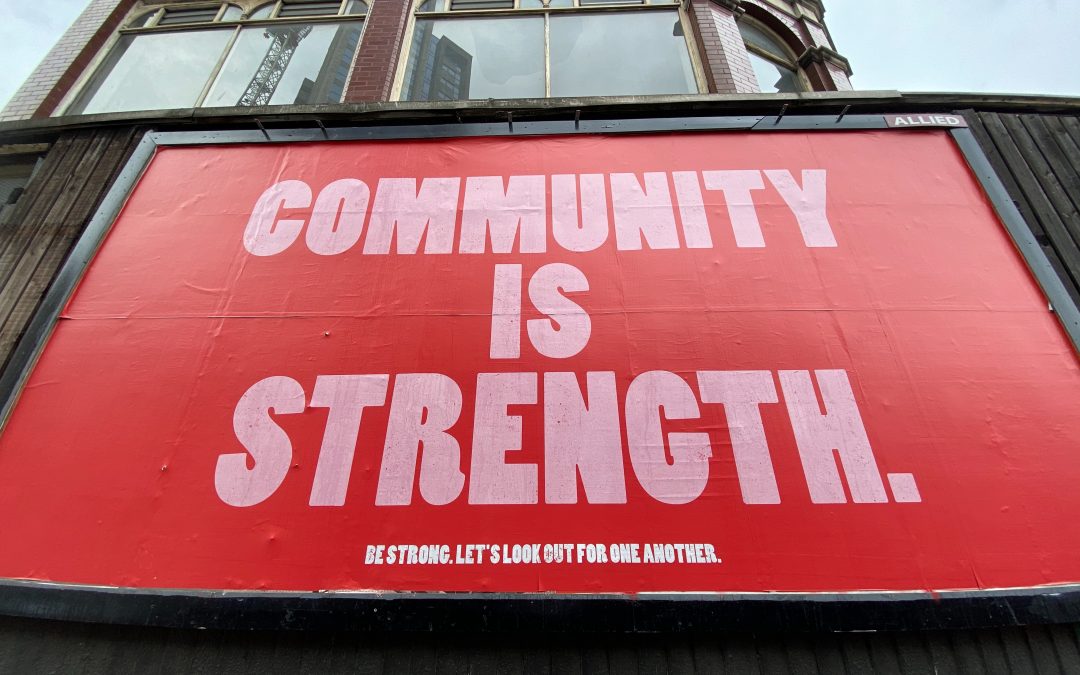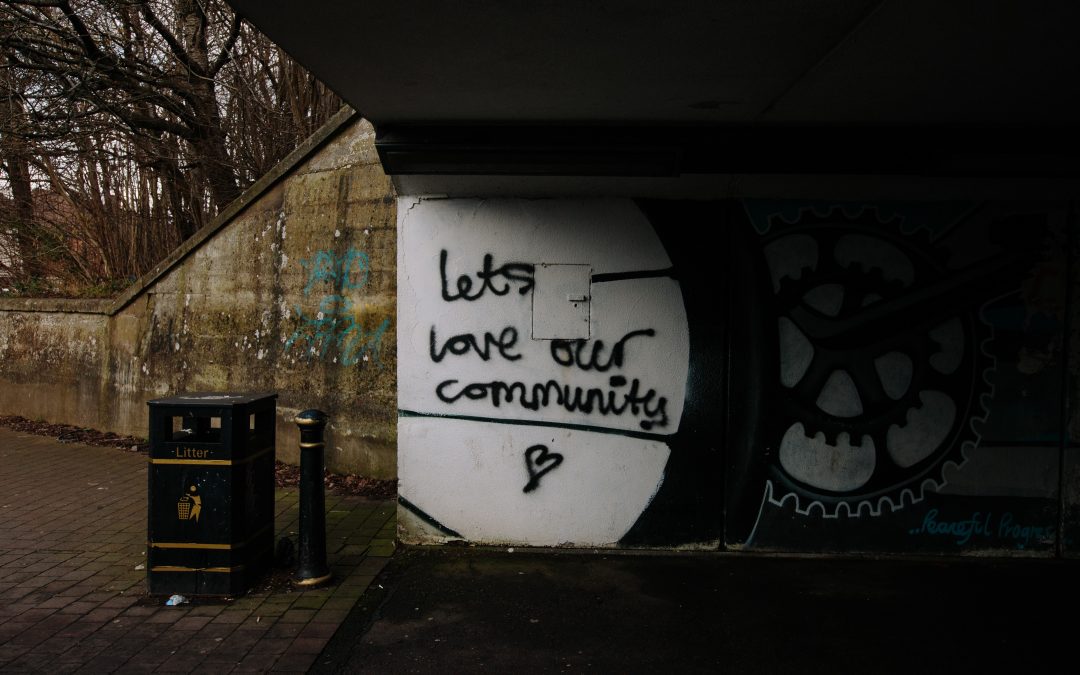
Community Driven Ubuntu Phone Core Apps
When we announced [Ubuntu for phones](https://www.ubuntu.com/devices/phone) on the 2nd January, we also had a call for volunteers to help create the core applications that would be part of the platform. Like any phone OS we need to provide a calendar, calculator, email, social media apps and more. Ubuntu has long been an open community project and we wanted to work with our community from the outset to work on a set of apps that we can all be proud of.
To do this we included a form on [developer.ubuntu.com](https://developer.ubuntu.com/get-started/gomobile/) and asked interested Qt/QML developers to fill it in if they were interested in participating. In just a few days we had over **1500** people fill in the form, expressing tremendous interest in being part of these projects and making an awesome Ubuntu phone platform.
We then finalized our list of apps that we think we need and then reached out to the most experienced of these volunteers and broke them into teams, with one team per application (these teams are fairly small, we couldnt use everyone who volunteered, but we will be having an Ubuntu Phone App Showdown in future, so stay tuned!)).
For each of the applications we then worked on some user stories and functional requirements to deliver the core functionality in each of these apps and documented them on the Ubuntu wiki. These applications are all available [here](https://wiki.ubuntu.com/UbuntuPhone/CoreApps/).
## Call For Design

So, we have a good set of developers assigned for each app, but we would like to invite our community to contribute design ideas for each of these apps. We have already defined a set of user stories and functional requirements, and for each app we have also defined a set of the core screens and functionality that we will need design for. We would like to invite you wonderful designers out there to contribute your design ideas, and these ideas can provide food for thought for the developers.
To do this we are using the popular [Balsamiq](https://www.balsamiq.com/) online mock-ups tool, and the Balsamiq folks have very generously provided an [Ubuntu MyBalsamiq](https://ubuntu.mybalsamiq.com/projects/ubuntuphonecoreapps) site where all of these designs can be storied, commented on, and refined. As such, you can contribute your designs there and then link them to the wiki page for the application the design is for.
A while back I asked Ivo Weevers, head of the design team at Canonical, for a set of design guidelines for these contributed designs to follow, but unfortunately his team has not had the time to deliver this yet, but we do have a simple set of [overall design suggestions](https://wiki.ubuntu.com/UbuntuPhone/CoreApps/Design) we would like to ask you to follow as well as some example designs that you can use to match your work to.
If you would like to contribute some designs, simply pick one of the following apps and follow the instructions on the page:
* [Calendar](https://wiki.ubuntu.com/UbuntuPhone/CoreApps/Calendar)
* [Clock/Alarm](https://wiki.ubuntu.com/UbuntuPhone/CoreApps/Clock)
* [Weather](https://wiki.ubuntu.com/UbuntuPhone/CoreApps/Weather)
* [Calculator](https://wiki.ubuntu.com/UbuntuPhone/CoreApps/Calculator)
* [Email Client](https://wiki.ubuntu.com/UbuntuPhone/CoreApps/EmailClient)
* [RSS Feed Reader](https://wiki.ubuntu.com/UbuntuPhone/CoreApps/RSSReader)
* [File Manager](https://wiki.ubuntu.com/UbuntuPhone/CoreApps/FileManager)
* [Document Viewer](https://wiki.ubuntu.com/UbuntuPhone/CoreApps/DocViewer)
* [YouTube](https://wiki.ubuntu.com/UbuntuPhone/CoreApps/YouTube)
* [Facebook](https://wiki.ubuntu.com/UbuntuPhone/CoreApps/Facebook)
* [Twitter](https://wiki.ubuntu.com/UbuntuPhone/CoreApps/Twitter)
* [Terminal](https://wiki.ubuntu.com/UbuntuPhone/CoreApps/Terminal)
If you don’t want to contribute a design but would like to offer input on the existing designs, simply click on the designs submitted on the wiki page and you use the comments box on the MyBalsamiq site to provide your feedback. I would like to also encourage you folks to share your designs on your blogs, on the [Ubuntu Reddit](https://www.reddit.com/r/Ubuntu), on social media, and other places!
Obviously not all designs will ultimately be implemented, but the goal here is to primarily provide a great opportunity for the best designs that match the design ethos of the Ubuntu phone to bubble to the surface.
## Other Contributions
All of the applications we are working on here have Launchpad projects set up and the code will be publicly available and Open Source from the beginning. We are currently working on a base template project to land in each trunk for the development teams to get started from.
There will definitely be other opportunities for contributing in the future (e.g. icon design, QA, testing), but for now we are focusing on the design and development phase. Stay tuned!
## Keeping In Touch
To other members of the Ubuntu for phones community, be sure to join the #ubuntu-phone IRC channel on freenode and you can [join the mailing list](https://launchpad.net/~ubuntu-phone). I will also be providing regular updates on this work on my weekly Q+A videocast every Wednesday at 7pm UTC on [Ubuntu On Air](https://ubuntuonair.com/).

Ubuntu Video Q&A This Week

This week’s live video Q&A is back to the normal time slot of **every Wednesday at 7pm UTC** ([click here for the time in your location this week](https://www.timeanddate.com/worldclock/fixedtime.html?iso=20130123T19&p1=1440&ah=1)). The day is different this week as I need to join a sprint later this week.
This week I will be running the usual hour long Q&A session as well as talking about some upcoming community projects.
To join, head over to [Ubuntu On Air](https://ubuntuonair.com/) at 7pm UTC on Wednesday and you can ask your questions in the embedded chat box.
Look forward to seeing you all there!

Ubuntu Phone SDK Experiments
When we announced [Ubuntu for phones](https://www.ubuntu.com/devices/phone) on the 2nd January we also announced the [developer preview of the SDK](https://developer.ubuntu.com/get-started/gomobile/). The SDK includes QML and the *Ubuntu Phone Components* that provides a set of controls for building applications. It includes a comprehensive development environment.
If you want to play with the developer preview, go and [get it](https://developer.ubuntu.com/get-started/gomobile/), then [follow the tutorial](https://developer.ubuntu.com/resources/app-developer-cookbook/mobile/currency-converter-phone-app/), and be sure to [ask questions](https://askubuntu.com/questions/ask?tags=mobile,application-development) if you get stuck.
We have already been seeing some interesting experiments going on on the [Ubuntu App Development Google+ Community](https://plus.google.com/u/1/communities/111350780270925540549) with people writing applications and playing with the SDK developer preview. I just wanted to share some of this work here.
*Francisco Gómez García* has been working on cProg inside a terminal:

*Stuart ‘Aq’ Langridge* has been working on a game:

*Martin Kaistra* has also been working on a Reddit reader for the phone:

*Micha? Pr?dotka* has also been experimenting with QML for his app:
[See the video here](https://www.youtube.com/watch?feature=player_embedded&v=Qxct-1iwaHo).
*Daniel Wood* has written a simple calculator:

We have also seen some interesting ideas and mock-ups for apps for the phone such as this from *we Love Ubuntu*:

And lastly, *Mark Johnson*, who obviously has far too much time on his hands, has ported his “JonoBoard” app to QML, thus unleashing the mighty power of community:
[See the video here](https://www.youtube.com/watch?v=Hw_wNsTov-0).
Remember, if you want to play with the developer preview, go and [get it](https://developer.ubuntu.com/get-started/gomobile/), then [follow the tutorial](https://developer.ubuntu.com/resources/app-developer-cookbook/mobile/currency-converter-phone-app/), and be sure to [ask questions](https://askubuntu.com/questions/ask?tags=mobile,application-development) if you get stuck. Enjoy!

This Week’s Video Q&A

After missing my weekly live Ubuntu and Community Management video Q&A last week due to [exhibiting at CES](https://archivedblog.jonobacon.com/2013/01/13/ubuntu-at-ces/), I will be doing this week’s live video Q&A on **Monday 14th January 2013** (tomorrow) at **7pm UTC** ([click here for the time in your location](https://www.timeanddate.com/worldclock/fixedtime.html?iso=20130114T19&p1=1440&ah=1)). The day is different this week as I need to join a sprint later this week.
I will be kicking off the session with a summary of Ubuntu at CES and a summary of the response to Ubuntu on phones in general as well next steps. We will then get into the Q&A, and as ever, you are welcome to *ask me absolutely anything* on the show.
To join, head over to [Ubuntu On Air](https://ubuntuonair.com/) at 7pm UTC on Monday 14th January 2013 and you can ask your questions in the embedded chat box.
Look forward to seeing you all there!

Ubuntu At CES
On Sunday last weekend I flew out to CES to join the rest of my colleagues to exhibit Ubuntu at the show. We were there to show the full range of Ubuntu form-factors that we have available; desktop, TV, Ubuntu for Android, and most recently, [Ubuntu for phones](https://www.ubuntu.com/devices/phone).
The Ubuntu booth was located in the South Hall within the cornucopia of screens and gadgets that is CES. The show is huge, really, really, huge, and one could be forgiven for thinking that Ubuntu would be a mere drop in the ocean when you have exhibitors such as Samsung and Sony with their warehouse sized booths. Fortunately, Ubuntu seemed to be one of the highlights at CES.
Although many people were there to see Ubuntu for phones, the phone is really only *one part* of the true magic of Ubuntu’s focus and direction; a single ubiquitous convergence story that runs across every device you care about and the cloud. This is a story that is a lot clearer when you see each of these different form factors sitting side by side in the same booth, it really helped to connect the dots with our visitors.

Ubuntu TV on display.
Ubuntu is about delivering a beautiful user experience that is perfectly tuned to the screen you are using, yet consistent in design and content across these different form factors. If you have used Ubuntu on the desktop, Ubuntu on the phone and TV looks and feels familiar. We have worked to build the content that you own (and the content that you *could* own) into the core of the platform, as opposed to it being buried in applications that you need to juggle to access it. We have worked to liberate web apps from the browser tabs that they are trapped in to integrate them with the core of the platform, and we have reduced the on-screen clutter that gets in the way of your content. [Ubuntu One](https://one.ubuntu.com/) provides the connection points between these screens with your personal cloud in which your files, content, settings, and other content is neatly synced between all of your devices; as an example, if you buy or download a new song on your phone, it will sync effortless to your desktop, TV and other devices. This convergence presents a consistent design, user, and content experience across all of your devices, and underlined by Ubuntu; a platform that has a long heritage of openness and community participation.
Our booth at CES was comprehensive. We had two large TVs with high quality cameras attached on either side of the stand where we did demos of the phone to interested passers by. In between these screens we then had stations for demonstrating Ubuntu for TV, Ubuntu One, Ubuntu for Android (which also demonstrated the Ubuntu Desktop), and the Ubuntu developer platform. Between these stations we gave out bags, t-shirts, literature, caps, DVDs, and other material.

An Ubuntu for phones demo station.
At the far end of the booth we also had our meeting room. With CES being a trade-only show, a primary goal for attending was to work with handset manufacturers and operators to explore how they can deliver Ubuntu to their customers. Mark Shuttleworth (founder of Ubuntu/Canonical), Jane Silber (CEO of Canonical), and Chris Kenyon (Head of Business Development at Canonical) spent most of their time in the meeting room talking with potential customers. Fortunately, their calendar was packed throughout the week with meetings and great progress was made.
I spent most of my time at the booth presenting the phone on the big screens to the crowds that visited us. Now, I am not using the word *crowd* here in an exaggerated sense either – the Ubuntu booth was *packed* throughout the week, and most people who I spoke to told me that one of the main reasons they came out to CES was to see Ubuntu and in particular to see Ubuntu for phones.

We saw a constant stream of visitors throughout the show.
We also had a huge number of press come along to the booth and myself as well as many of my colleagues did countless demos both on and off camera to these members of the press. Speaking of press, I was delighted to finally meet Timothy Lord from Slashdot and I did a short interview and demo with him. I saw that a video of one of my demos is [available online](https://www.iloveubuntu.net/jono-bacon-video-demoes-ubuntu-phones-ces-2013) as well as some [questions about the phone that I answered](https://www.iloveubuntu.net/jono-bacon-answered-questions-ces-2013-related-closing-windows-terminal-respins-etc). Also, be sure to see [SJVN’s write up about Ubuntu for phones](https://www.zdnet.com/top-5-reasons-the-ubuntu-linux-phone-might-make-it-7000009721/).
I have done trade-shows before, and I have exhibited Ubuntu many times at these shows. Although I had never done CES, I had done something similar in style and size (CeBit in Germany), and I had a broad idea of what to expect. Fortunately the show more than surpassed my expectations. We were absolutely inundated with people, and every time I gave a demo of Ubuntu for phone the audience smiled with interest as I walked them through the different features of the phone. Ubuntu for phones was very, very positively received, and from a “*things often go wrong when demoing at trade-shows*” perspective, we didn’t experience a single crash or failure with the phone (or anything else that we demoed). The only problem we had was rather flakey Internet access which impacted me demoing the deep integration of websites and social media into Ubuntu for phones.
We also had a few other fun things happen. The week set off on the right foot when we won the Editors Choice award at CES from [Popular Mechanics](https://www.popularmechanics.com/) magazine, and we also had will.i.am from the Black Eyed Peas show up to see the Ubuntu phone. We were also expecting MC Hammer to visit us, which unfortunately didn’t happen, but infamous hacker Kevin Mitnick did make an appearance, to which my colleague Michael Frey and I swooned like Justin Bieber fans.

The team holding the Popular Mechanics award.
All in it was a tremendously productive and positive week.
I have never been so excited to be part of Ubuntu and part of this convergence story that we are creating. Not only is this a great opportunity for Ubuntu, but it is a great opportunity for Open Source and Free Software, which continue to drive the ethos and values that form Ubuntu. Everything that we exhibited at CES is Open Source, and our community are a core part of how we build this platform and bring it to the masses.
We have the potential of building a an ubiquitous platform that is simple and elegant for anyone to use, but driven by the values of Free Software. This is what freedom is all about; freedom of technology, freedom of choice, and freedom that is accessible to everyone. Let’s do this.

Announcing Ubuntu For Phones

Today we announced the [Ubuntu for phones](https://www.ubuntu.com/devices/phone) platform.
This is the culmination of an extensive period of work, and pushing Ubuntu another step further in building a consistent, elegant, beautiful Operating System and experience across the desktop, cloud, and devices.
The design and implementation of the phone is *beautiful*. You can immediately tell it is Ubuntu; the Unity mobile experience looks clean and consistent with the desktop and touch is stunningly integrated. The Ubuntu for phones experience is designed to make all your phone content easier to access and your apps more immersive – every edge has a specific purpose, making all your apps, content and controls instantly accessible, without navigating back to the home screen every time. It’s a uniquely, beautifully converged experience.

Ubuntu, clean and consistent across mobile and desktop.
Ubuntu for phones is not just limited to just the Operating System on the phone screen itself. Ubuntu also has the technology, as demonstrated with [Ubuntu For Android](https://www.ubuntu.com/devices/android), to boot a full Ubuntu desktop from the phone when it is docked with a screen. This provides a complete Ubuntu experience in your pocket, for both your phone and your desktop, with a clean consistent look across both screens, and with all your content available on your phone and desktop using [Ubuntu One](https://one.ubuntu.com). This is revolutionary.
To be quite clear, this announcement is not for a physical Ubuntu Phone that you can purchase yet. The announcement is for the Ubuntu for phones platform that we are presenting to handset operators and OEMs as a solution that they can bring to market. The Ubuntu phone offers great performance on handsets with a low bill of materials, while opening up new opportunities for phone and PC convergence at the top end of the market. This is no mockup or flash demo though; this is a real platform, and you have to see it in action…it really is *stunning*.
As part of this work we will have an extensive presence at the [Consumer Electronics Show](https://www.cesweb.org/) next week in Las Vegas. We will be exhibiting there, demoing Ubuntu for phones and in meetings with OEMs and operators to get this baby in your pocket as soon possible. I will be presenting at the booth for the week too, and I will be discussing the new developer platform that is part of Ubuntu for phones.
## For Developers
So that neatly leads me to *developers*.
The Ubuntu for phones platform does not just present a fantastic integrated phone experience, but we have also been working on a [powerful developer platform](https://developer.ubuntu.com/get-started/gomobile/) to make building apps for the phone simple, powerful and fun.
The phone platform supports applications written in QML, HTML5, and OpenGL.
We have been working on an SDK with a special set of phone components (think widgets and other UI elements) that run on top of QML and Qt, and the applications look and feel as beautiful as the rest of the phone platform. Also remember that Ubuntu has great support built in for web apps, which means that taking a web app and building a native phone (or desktop) experience is a piece of cake. Oh, and all those scopes in the Ubuntu desktop, well, they map neatly to the other devices such as TV and now phone too. This is what Unity is all about: a unified experience across all your screens.
This means that developers have choice in how they build their apps and don’t have the overhead of the Java virtual machine when writing and deploying their apps. All in all, Ubuntu for phones offers an awesome developer platform.
Now, the SDK is still very much in active development, but today we are also releasing a [developer preview](https://developer.ubuntu.com/get-started/gomobile/). This preview includes the new Qt 5 which was recently released, as well as the QML Phone Components, and we have a [full tutorial](https://developer.ubuntu.com/resources/app-developer-cookbook/mobile/currency-converter-phone-app/) that shows you how to get started building a QML app for the phone.
## Get Involved
As part of this work, we want to build an awesome library of applications that will run out of the box when a operator/OEM delivers Ubuntu on their handsets. As such, we are keen to work with our community to build out this library of apps, and we are looking to you lovely people to help!
If you have Qt/QML programming experience (or can get up to speed with the platform) and would like to help build these apps that will ship with an Ubuntu phone, we would love you to join us! Simply head over to [the developer.ubuntu.com phone page](https://developer.ubuntu.com/get-started/gomobile/) and fill in the form. We will then get in touch with you over the coming weeks.
This work will have full support from the design team to help with the design and layout of the apps, and we will also have mentoring and project management to ensure everyone who participates enjoys helping with this wider effort. This is a great way to help get the Ubuntu phone in front of millions of users.

2013 is off to a wonderful start for Ubuntu and continued spread and growth of Open Source and Free Software. Let’s make this year count. Fire up your engines. 🙂

Happy Holidays!
Just a quick post to wish all of you a safe and happy holidays, wherever you may be, and whoever you are spending it with.
This year was a great year for Ubuntu, and a great year for Free Software. Step by step we are bringing freedom of technology to more and more people across the desktop, cloud, and devices, and underlining this freedom with a continued focus on elegance and quality. We still have a long road ahead of us, but our wheels are rolling and we are cranking out some AC/DC for the journey; anything is possible.
On a personal note, I just want to thank all of you for reading my blog and social networks and participating in the conversations therein. I know sometimes my posts have sometimes generated some dissenting views, but I cherish all perspectives that you folks share, both supportive and challenging to the work that we do in Ubuntu and the work I do personally as a community manager. I have always been a firm believer in personal growth and evolution, and this year I have been blessed by many of you providing me with different ways of viewing challenges, and different ways of seeing opportunities. These views help me to be a better person, and do a better job.
This is a very special Christmas for me and my family with our new little addition, Jack, and I hope all of you have an equally special and relaxing break. Thanks!

Creating An Awesome LoCo Support Community
Our [LoCo Teams](https://loco.ubuntu.com/) are a wonderful part of the Ubuntu community. They provide a fantastic place for Ubuntu users to meet other users locally and enjoy Ubuntu together either online or in person.
LoCo Teams also often get together to help share Ubuntu with others and encourage local schools, charities, businesses and others to use Ubuntu and Free Software. This includes handing CDs out to local residents, organizing release parties, installfests, global jam events and more.
It is pretty common for members of LoCo teams to have questions about how to organize events and spread the word about Ubuntu in different ways, and we want to provide a fantastic resource where our community can both ask and answer questions.
With the tremendous success of [Ask Ubuntu](https://askubuntu.com/) in the wider Ubuntu community, we want to help encourage our LoCo Teams to ask these questions there. Ask Ubuntu provides a fantastic audience, and questions answered there can be edited and up-voted to be re-usable when the same question is asked in the future.
To do this we are using the `locoteams` tag, and here is how you ask and answer questions…
## How To Ask a LoCo Question
Simple go to [this link](https://www.askubuntu.com//questions/ask?tags=locoteams) and you will see this:

Here you can ask your question. Some tips:
* For the *Title*, be as clear as possible about the overall question.
* In the body of the question provide all the relevant detail. The more detail the better the answer (but also don’t ramble on too much, keep it focused on the question).
* Raise the awareness of your question by tweeting it and using the `#locoteams` hash-tag. Also post it on Facebook and Google+.
## How To Answer Questions
We are always looking to our community to help answer as many questions as possible.
To answer questions simple go to [this link](https://askubuntu.com/questions/tagged/locoteams?sort=unanswered).
Hopefully all questions should be answered and it should look like this:

If there are questions though, please try to answer them and provide as much detail as possible in your response. Remember that the poster may be very new so try not to presume too much in your response (such as any terms/jargon/acronyms that you may think they may know).
I would like to ask you folks to check this page every day or so to help weigh in in the answers so we can ensure all questions get a good, solid response within a day or so. Thanks in advance for your help!
## If In Doubt…
This week I have been blogging about the [Ubuntu Advocacy Development Kit](https://archivedblog.jonobacon.com/2012/12/14/ubuntu-advocacy-development-kit-packaged/) which is now available for installation.
To make asking and answering questions simple, you can access these pages right from within the kit on the tool-bar:

Thanks in advance for the questions and answers, and for helping to spread Ubuntu further and further afield across the world!

Ubuntu Advocacy Development Kit Packaged
Earlier this week I [blogged about the Ubuntu Advocacy Development Kit](https://archivedblog.jonobacon.com/2012/12/12/kicking-off-the-ubuntu-advocacy-developer-kit/); designed to be a simple, straight-forward kit that includes all the documentation and materials that you need to to join and create [LoCo Teams](https://loco.ubuntu.com) and help spread the word about Ubuntu in your area (whether in a LoCo Team or not). This is part of our goals to help grow the ubiquity of Ubuntu around the world.
Thanks to *Daniel Holbach*, we now have a daily PPA with the kit inside it so you can now find it easily in the dash:

Access the kit easily on your desktop.
Simply click the icon in the dash and the kit will load into your web browser:

The front page of the kit.
The kit also includes PDF and ePub versions of the documentation so you can read how to advocate and spread the word about Ubuntu on your mobile, tablet, and e-book reader!
You can add the PPA by cutting and pasting this command into a terminal:
sudo add-apt-repository ppa:ubuntu-adk-admins/ppa;
sudo apt-get update; sudo apt-get install ubuntu-adk-en
In the future we plan on making formal releases of the ADK, but for now the daily PPA will automatically show you the most recent content in the kit as it is developed, conveniently accessible from the dash. Please be sure to [report bugs](https://bugs.launchpad.net/ubuntu-adk/+filebug).
Tonight I spent some time expanding the content, fixing up the navigation, removing cruft, and adding project logos to the materials section. The kit is starting to take shape. 🙂
Please bear in mind though that the kit is only a few days old, so there is lots to do, and we would welcome anyone who can help! You can find information inside the kit of how to participate by clicking on *About*.
Thanks!

Ubuntu Accomplishments 13.04 Update
At the beginning of the 13.04 cycle one of the plans I put in place for my team was the deployment of [Ubuntu Accomplishments](https://wiki.ubuntu.com/Accomplishments) as a production service for our community. This work involves the following components:
1. Deploying the validation server on Canonical hardware and managed by the IS team.
2. Deploying the web gallery to `trophies.ubuntu.com`.
3. Updating the client to support publishing to `trophies.ubuntu.com` (publishing is *not* switched on by default and has to be enabled).
4. Packaging and releasing the daemon and viewer in the *Ubuntu Software Center*.
5. Performing a round of QA and testing to ensure the quality of the release is high.
I just wanted to provide a quick update on this.
Canonical IS recently provisioned the machine that the validation server and web gallery will run on. Yesterday *Michael Hall* and I re-deployed the validation server on a CanoniStack instance to ensure the deployment instructions worked correctly. Mike then went onto deploy the web gallery and update the deployment instructions there. We expect IS to deploy this in the next few weeks and then I will shut down to current validation server that is running on my own [Bytemark](https://www.bytemark.co.uk/) server. Thanks again to Bytemark for providing the server for free to support the project!
You can see a live demo of the current web gallery by [clicking here](https://91.189.93.66/gallery/trophies/jonobacon/all/) (this shows my own set of accomplishments); also see [Michael Hall’s accomplishments](https://91.189.93.66/gallery/trophies/mhall119/all/) as another example. Clicking on an accomplishment shows more information about it and you can also [view all opportunities online too](https://91.189.93.66/gallery/opportunities/all/). There is still work to be done, but good progress is being made. 🙂

Share your community achievements with the world!
There has been active discussion around the packaging requirements for the software in the *Ubuntu Software Center*. Michael is coordinating these needs with Rafal so any required changes can be made. One challenge here is how DBUS works with the daemon. Thankfully, `didrocks` is supporting Rafal to achieve this work. One way or another, there will be Ubuntu Accomplishments available for Ubuntu 13.04 (not installed by default but installable from the *Ubuntu Software Center*. 🙂
In other news, [Matt Fischer](https://www.mattfischer.com) and [Chris Wayne](https://www.mattfischer.com) have built support in Ubuntu Accomplishments for the [Fitbit](https://www.fitbit.com/); the awesome little personal fitness device. This is not a commercial service or engagement; just adding support to see your Fitbit badges in your Ubuntu Accomplishments viewer. With this you can find out more information about how to achieve the different Fitbit badges right within Ubuntu Accomplishments. It looks like this:

Getting fit wasn’t fun…until now!
What is neat about this is that this support makes use of the [Online Accounts](https://developer.ubuntu.com/resources/technologies/online-accounts/) feature in Ubuntu, so you simply authenticate with your Fitbit account and then you are good to go. Read more about this [from Matt](https://www.mattfischer.com/blog/?p=357), [from Chris](https://chrismwayne.com/?p=155), and [from Rafal](https://rafalcieslak.wordpress.com/2012/12/08/fitbit-trophies-as-a-milestone-for-ubuntu-accomplishments/).
## Getting Involved
*Ubuntu Accomplishments* in Ubuntu 13.04 is going to be an awesome feature and achievement for the project. While it won’t ship by default in Ubuntu 13.04, it will only be a click away in the *Ubuntu Software Center*.
To make this first major release as good as it can be, we need help! Thankfully, there are lots of ways to help, such as:
* [Hacking](https://wiki.ubuntu.com/Accomplishments/GetInvolved/Hacking)
* [Documentation](https://wiki.ubuntu.com/Accomplishments/GetInvolved/Documentation)
* [Testing](https://wiki.ubuntu.com/Accomplishments/GetInvolved/Testing)
* [Translations](https://wiki.ubuntu.com/Accomplishments/GetInvolved/Translations)
* [Creating Accomplishments](https://wiki.ubuntu.com/Accomplishments/Creating)
* [Support](https://wiki.ubuntu.com/Accomplishments/GetInvolved/Support)
You can also find out how to get the [development branch set up](https://wiki.ubuntu.com/Accomplishments/GetInvolved/DevelopmentSetup) and if you have any questions feel free to reach out in `#ubuntu-accomplishments` on Freenode or on our [mailing list](https://wiki.ubuntu.com/Accomplishments/GetInvolved/DevelopmentSetup.
Please feel free to ask any questions in the comments!
